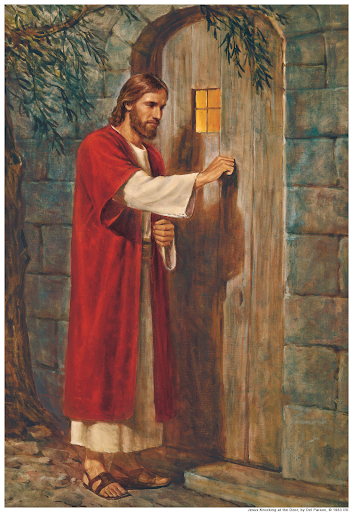
Image source: https://www.fairlatterdaysaints.org/temples/qa/are-mormons-christians
Introduction
It’s a curious thing when adherents who belong to other denominations ask the question, “Are Mormons Christian?”
Members of the Church of Jesus Christ of Latter-day Saints fully embrace the conviction that Jesus Christ is the Son of God. They do not waver in their belief that Jesus is the Savior of the world. Only through His supreme sacrifice are they able to return to live with Christ and our Heavenly Father. They accept the concept of His virgin birth through His mother, Mary, and that His sinless life served as the prime example for us to follow. They believe He was crucified, suffered, and died for our sins. Three days later He emerged from the tomb as a resurrected, perfected Being and will one day return to this Earth to rule and reign. It is only through faith in His Atonement that humanity can be reconciled before God and forgiven of their sins.
The Early Christian Church
The term “Christian” was first placed upon believers, we learn in Acts 11:26, in the city of Antioch. The term was originally intended to be derogatory, though today it is heartily accepted by faithful Christians across the world.
There seem to be two sticking points emphasized by non-Latter-day Saints in the so-called debate of Mormons vs Christians.
- The Trinity
Mormonism does not regard the Nicene Creed, originally created by an ecumenical council in the city of Nicea (now İznik, Turkey), under the direction of the Roman Emperor Constantine in 325 A.D, as a binding or authoritative statement of doctrine. The purpose of the First Council of Nicene was to address a contentious rift between two Christian factions–the Homoousians and the Arians. This disagreement had been raging for more than a century. Simply put, Homoousians believed that the Father and the Son were “of one substance” while Arians believed that the Father and the Son were two separate entities. The First Council did not even address the idea that the Holy Ghost was also of the same substance of the Father and the Son. The full doctrine of the “trinity” was first articulated in a second ecumenical council convened in 381 AD (First Council of Constantinople).
The long and short is that those Christian leaders most closely associated with the Roman Emperor, in particular Eusebius of Caesarea (also called Eusebius of Pamphili) won the day and Arianism was condemned and its believers declared heretics. The argument certainly wasn’t settled at the time. There were, in fact, a total of 7 ecumenical councils between 325 AD and 787 AD. Even when the Emperor Constantine was finally baptized, a few months prior to his death, the event was reportedly carried out by an Arian bishop.
There is significant evidence that the earliest Christians believed the concept that the Father and the Son were separate and distinct beings, as attested in the Epistle of Diagnetus, and by such early Christian theologians as Justin Martyr (ca. 100–165), Iranaeus (ca. 130–202 AD), Tertullian (ca. 155–220 AD), Novatian (ca. 200– 258) and Origin (ca.185–253).
In their 1st Article of Faith, Latter-day Saints affirm their belief that the Father, the Son, and the Holy Ghost are 3 separate and distinct beings.
2. Theosis
The second sticking point for some who profess to explain Why Are Mormons not Christians? is the concept of theosis or deification–the belief that the destiny of humankind is to become like God. This concept is particularly offensive to Western Christian Fundamentalists, who in the 1980s launched an effort to attack the Mormon Church on this front by distributing a film and book called “The Godmakers.”
What Western Christian Fundamentalists fail to acknowledge is that theosis is not only a commonly-expressed doctrine in early Christianity, but continues as a doctrine in many present-day Christian denominations, including the Greek Orthodox Church and other Eastern Christian churches that date their origins at least as early as the Roman Catholic Church.
Fundamentalist Christians who reject the concept that man (and woman) can become like God might also be surprised to learn that many ancient and modern Christian philosophers in the West have also espoused this idea. The list is so long that it seems easier to reference a useful compilation of sources found here.
Christians of most denominations respect and admire Christian author and philosopher C.S. Lewis. Here are two quotes from his book Mere Christianity:
“He came to this world and became a man in order to spread to other men the kind of life He has – by what I call ‘good infection.’ Every Christian is to become a little Christ. The whole purpose of becoming a Christian is simply nothing else.”
“The command Be ye perfect is not idealistic gas. Nor is it a command to do the impossible. He is going to make us into creatures that can obey that command. He said (in the Bible) that we were ‘gods’ and He is going to make good His words. If we let Him – for we can prevent Him, if we choose – He will make the feeblest and filthiest of us into a god or goddess, dazzling, radiant, immortal creature, pulsating all through with such energy and joy and wisdom and love as we cannot now imagine, a bright stainless mirror which reflects back to God perfectly (though, of course, on a smaller scale) His own boundless power and delight and goodness. The process will be long and in parts very painful; but that is what we are in for. Nothing less. He meant what He said.”
The Consensus Other arguments are also put forward to make a case against the idea “Is Mormonism Christian.” Beyond the two sticking points already discussed, these arguments become increasingly fragmented and nit-picky. What remains is the reality that members of the LDS Church revere Jesus Christ in a way that mirrors the faith and devotion of the most ardent supporters of the concept that Jesus Christ is the Savior of the World and the only means whereby humankind can receive the gift of salvation. The passion is identical and the application of associated principles of daily conduct are the same. Therefore, by any practical definition, Mormons are indeed Christians.

By Todd Noall, Source Expert
Todd Noall is an author and religious scholar at Mormonism Explained with a focus on the history and theology of religion.

Fact Checked by Mr. Kevin Prince, Source Expert
Kevin Prince is a religious scholar and host of the Gospel Learning Youtube channel. His channel has garnered over 41,000 subscribers and accumulated over 4.5 million views. Mr. Prince also created the Gospel Learning App, a reliable platform where individuals seeking truth can access trustworthy answers to religious questions from top educators worldwide.
About Mormonism Explained
Mormonism Explained is a resource that was designed to provide objective and factual information about Mormonism, its history, doctrines, and policies. Our team of researchers consults experts and primary sources to present factual information on a variety of topics relevant to the Mormon Church.
Tags
